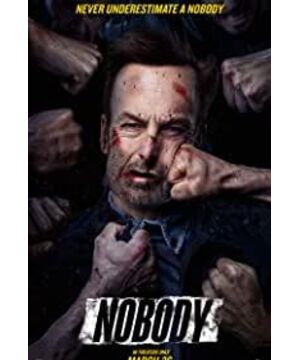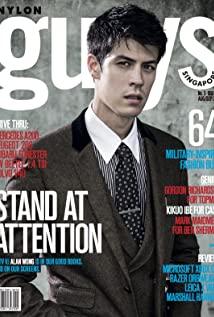I woke up early every day to do the work of a housewife and practice pull-ups at the bus stop. I don't know when I stopped having sex, and my brother-in-law gave me a gun forcibly. The simple strokes outlined at the beginning of the film tell us that the little employee Hutch is experiencing what may be the most serious kind of mid-life crisis, because the trouble he wants to solve does not come from family and work, time and money-he can Sleeping peacefully with your daughter in your arms, you can also pull out golf clubs without worrying about damaging the furniture. The biggest problem he faced was himself: he lacked masculinity. "Nobody" is not a "little" character, but a "no" character. Hutch's "nothing" is manifested as a lack of inner temperament. In other words, he is not a man.
As a result, I proved myself to be a member of Freud's loyal supporters, and naturally mixed with the high-risk threshold of crossing the middle-aged crisis, shaking his fist, pulling the trigger, spraying blood and other simple and rude demonstrations of male power. Supported by the noble motives of protecting family members and fighting harm to the people, the activities of the people are shining brightly. The little clerk broke out. He started desperately and began to fight back. He left the bully with nothing to say, and he let the bad guys and villains receive their due punishment. He makes us breathless, he makes us excited, and he makes us give up thinking.
Unfortunately, thinking is a man's bounden duty. Behind the film, there is actually a cunning means "hidden", just like the meaning of the verb in Hutch's name. As the story progresses, the life experience of this middle-aged crisis patient is gradually revealed. We find that he is not not a man. On the contrary, he has done what many men dream of, and experienced the pride and pleasure brought by the majestic power. Hutch is the man among men. He just "hidden" all his masculinity. He doesn't need proof at all, he just needs to show his nature.
This is cunning. It is cunning to use a middle-aged crisis without a crisis to solve the middle-aged crisis, and to use a big person disguised as a small person to endorse the "no" character. This is cunning; it makes the audience empathize with Hutch, and makes him a wonderful and loud applause, even It is cunning to forget his true identity in the dazzling state. The film raises a question, but only leaves a pile of empty shelves and props bills burned out for the audience, and a real and tangible mid-life crisis (and all life crises that can be associated with it), waiting for you to do it yourself deal with. How to deal with it? Probably like Hutch at the beginning of the film, endure, endure.
Ninety minutes of satisfaction was exchanged for the sense of loss after ninety minutes—losing that I couldn’t shoot, didn’t have guns, lacked the same masculinity... I don’t know how many people stuck in the mud would want to do a Hutch. illusion. Don't forget, the film tells us that if you can be as brave as Hutch, not only the middle-age crisis can be solved, but the old-age crisis is also not a problem: just look at his old father to understand.
This is the reason why we love movies, and also the reason why we hate movies.
View more about Nobody reviews











